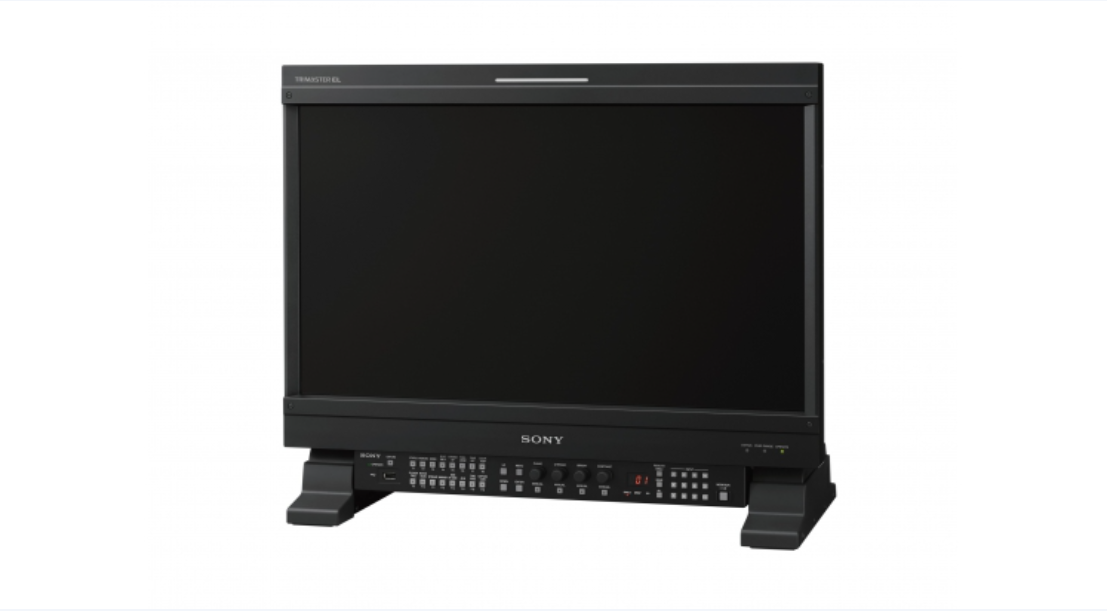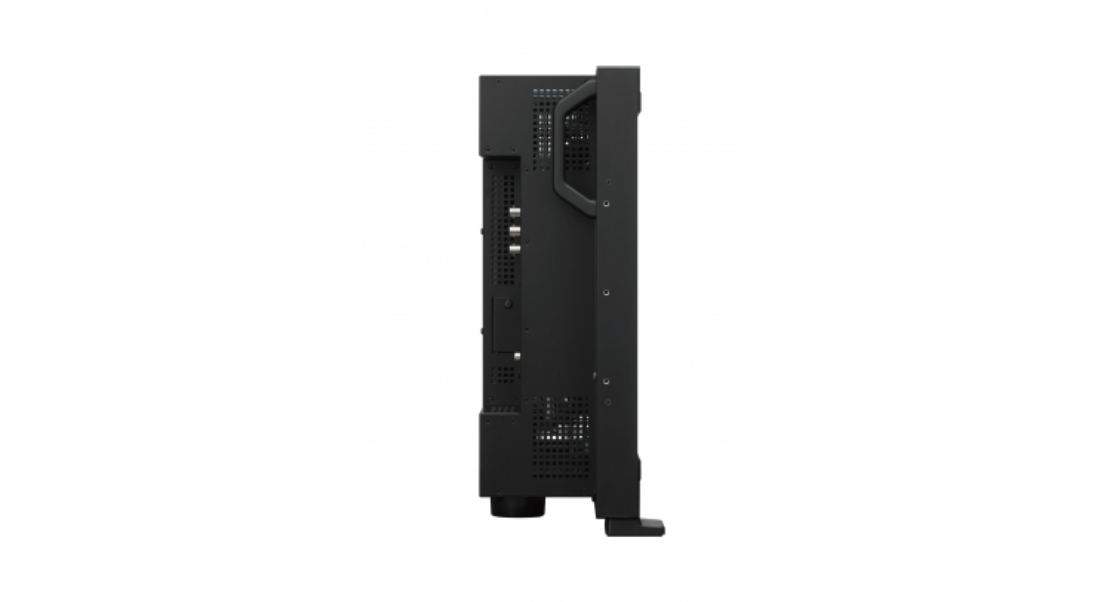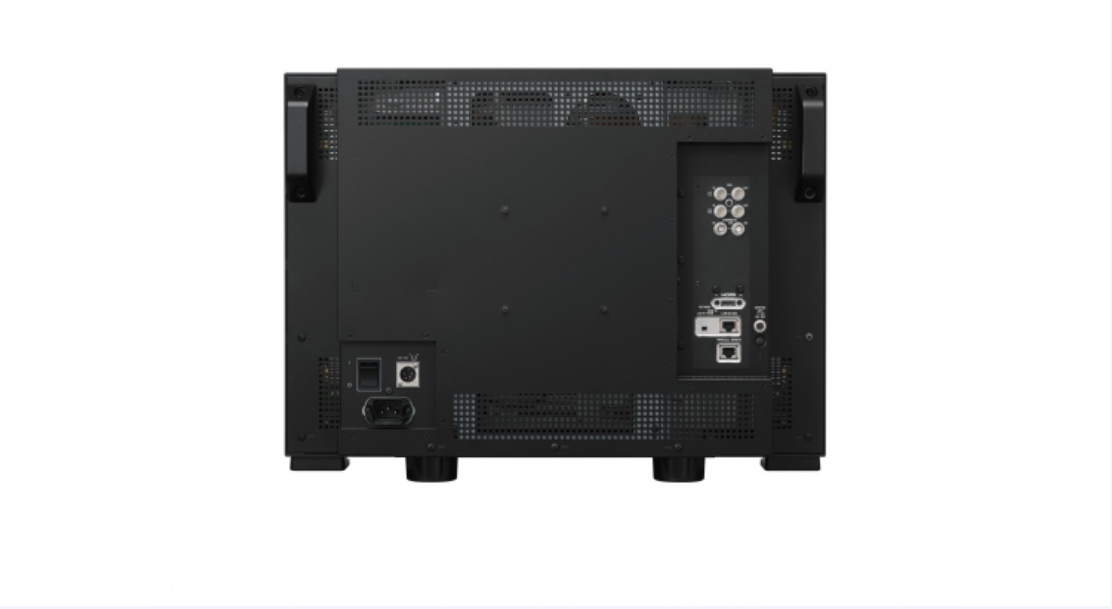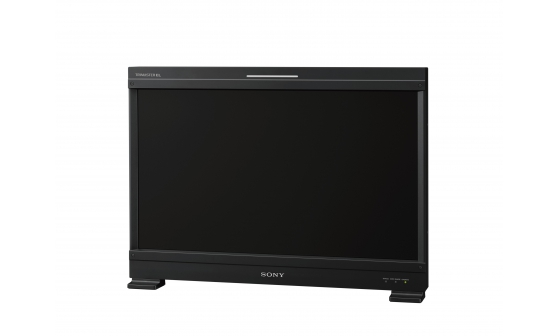BVM-E251 - Sony Refurbished
Age:1 year
Condition:Excellent
Only for sale in US & Canada
24.5-inch TRIMASTER EL™ reference monitor, with 2nd Gen OLED.
Dramatically improved viewing angle for critical picture evaluation in the studio and on-set
For professional applications such as colour grading, high-end editing, broadcasting and scientific research, Sony’s leading edge Organic Light-Emitting Diode (OLED) technology and signals processing technology ensures absolutely outstanding performance with the BVM-E251. The colour shift depending on the viewing angle has reduced to less than half compared the 1st generation OLED panel. It allows several people to evaluate the image with extreme accuracy at the same time, increasing the monitor’s versatility in top end monitoring solutions.
24.5-inch TRIMASTER EL™ reference monitor with second generation OLED offers dramatically improved viewing angle for critical picture evaluation in the studio and on location.
For professional applications such as colour grading, high-end editing, broadcasting and scientific research, Sony’s leading edge Organic Light-Emitting Diode (OLED) technology and signals processing technology ensures absolutely outstanding performance with the BVM-E251. The colour shift depending on the viewing angle has reduced to less than half compared the first generation OLED panel. It allows several people to evaluate the image with extreme accuracy at the same time, increasing the monitor’s versatility in top end monitoring situations.
Super Top Emission technology enhances OLED’s intrinsic benefits to deliver outstanding black performance, a quick response time with virtually no motion blur and a wide colour gamut. A 12-bit output digital signal processing engine provides a nonlinear cubic conversion colour-management system that delivers precise colour reproduction, stunning picture uniformity, smoother-than-ever gamma performance and picture quality consistency.
The TRIMASTER EL OLED panel’s superb quick response and scan-driving performance deliver stunning picture quality with virtually no motion blur. However, there is a possibility that flicker is just visible especially when a lower frequency signal is displayed (24p, 24PsF, and 50i). To remove visible flicker, the BVM-E251 is equipped with Flicker-free mode.
The BVM-E251 can be DC operated and features a DC low power indicator. This feature gives more flexibility and mobility to users who want the larger size screen for the on-set application.
* Requires v1.1 update.
The BVM-E251 conforms to ITU-R BT.709 colour space. Responding to an increase of the demand of using an HD monitor in a 4K production, BVM-E251 also supports the ITU-R BT.2020 colour space and transfer matrix.
The BVM-E251 accepts various computer signals input up to 1920 x 1080 through its HDMI connector. It also accepts Digital Cinema 2048 x 1080 signals. The monitor supports the HDMI specification for RGB/YCC full range.
* Requires v1.1 update.
Sony's Super Top Emission™ technology has a micro-cavity structure which incorporates colour filters. The micro-cavity structure uses an optical resonance effect to enhance colour purity and improve light-emission efficiency. In addition, the colour filter of each RGB further enhances the colour purity of emitted light and reduces ambient light reflection.
The monitor’s high-precision signal processing engine has been developed to fulfil the reference monitor criteria and is optimized to maximize the OLED panel performance. This engine incorporates 12-bit output accuracy at each process and provides both a high quality I/P conversion algorithm and a highly accurate colour management system.
The BVM-E251 monitor can accept almost any SD or HD video format, such as analogue composite video, HDMI and SDI, and variable computer signals through HDMI. The monitor supports the HDMI specification for RGB/YCC full range*.
* Requires v1.1 update.
The colour temperature and white balance of BVM Series monitors can be automatically adjusted by the Auto White Balance function using specified colour temperature probes, such as
Konica Minolta: CA-210, CA-310, CS-200
DK-Technologies: PM5639/06
X-Rite: i1 (Eye-One) Pro and i1Pro2
Photo Research: PR-655, PR-670
Klein: K-10
Jeti: Specbos 1211
The BVM-E251 monitor uses a sophisticated I/P conversion technique that keeps artefacts that are often seen in flat panel displays to a minimum, such as edge jaggedness, conversion errors, etc.
The BVM-E251 display engine ensures a picture delay that is less than one field.
Every BVM-E251 monitor is carefully calibrated at the factory on an individual basis, providing a high level of accuracy and stability for characteristics such as gamma and uniformity.
Faithfully reproduces interlaced signals, emulating CRT monitors.
The unique Picture & Picture function of the BVM-E251 allows simultaneous display of two input signals on the monitor’s screen. This function is extremely convenient for making instant adjustments to two input sources. Four modes are available to provide users with enhanced operational flexibility: Side by Side, Wipe, Butterfly and Blending.
A selected area of the displayed picture can be enlarged on a pixel basis, up to eight times in size both vertically and horizontally.
BVM-E171 incorporates a Gamut Error Display function that detects irregular signal input.
BVM-E251 incorporates EOTF tables to reproduce images captured using S-Log3(SDR) and S-Log2(SDR). These are techniques used in Sony’s digital cinematography cameras that allows the full latitude of the camera sensor to be maintained throughout the production chain.
The 2048 Image Slide function of the BVM-E251 allows 2K resolution (2048 x 1080 pixels) images to be mapped, pixel-to-pixel, on the Full HD (1920 x 1080 pixels) panel without picture degradation. The monitor is equipped with a slide function that allows the display of missing pixels in native mode from the left and right part of the picture.
The Scan Switch function allows switching between under scan (-3%), normal scan (0%), and over scan (5%).
The Native Scan function is a unique display mode that reproduces images without changing the input signal’s pixel count.
The HD Frame Capture function of the BVM Series allows a picture frame from the 3G-SDI and HD-SDI input to be captured and saved as a picture file on a USB memory media (via the BKM-17R). This picture file can be used as a reference for various purposes, for example, for picture-tone adjustments between past images and for camera-framing adjustments.




